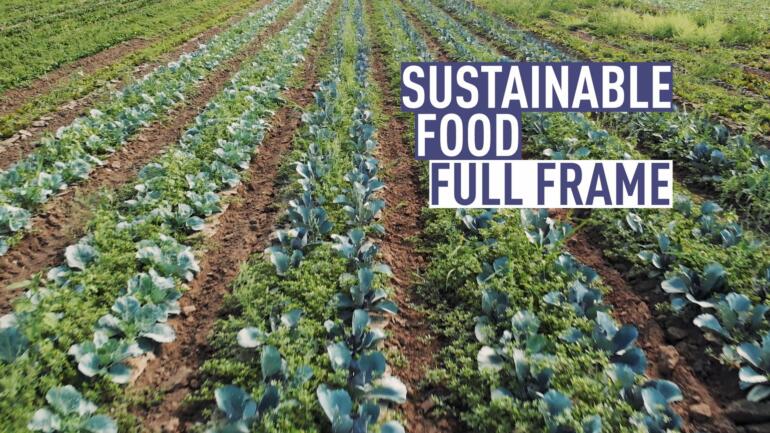By 2050, we will need 56 percent more food to feed 10 billion people, according to the World Resources Institute. But our global food system is challenged by climate change. How can we create a sustainable food system without using more land?
Florence Reed works with farmers in Central America to restore degraded farmland and introduce regenerative farming practices. She is the founder of Sustainable Harvest International. “It just breaks my heart to see humans just through lack of knowledge of a better way, choosing to use death as a way to grow our food, rather than using all of the abundance of life that can work together to produce an abundance of healthy food for us,” Reed said in an interview with Full Frame host Mike Walter.
Sustainable Harvest International’s farming practices are rooted in building up soil health and promoting biodiversity. From using compost and avoiding toxic chemicals, to growing different kinds of crops, Reed said the results are encouraging. Currently, she said, “The world spends a tremendous amount on subsidizing agriculture that fuels climate change.” “If all 500 million of those smallholder farmers around the world made this transition, they could get us 53% of the way to the United Nations goal for greenhouse gas reductions,” she said.
A project to save bees and save biodiversity
Project Pollinate is an initiative to protect and nurture the bee apiaries close to agribusiness company COFCO International’s sugarcane fields. “If we didn’t have bees, 80% of all fruit and vegetables would not be here. We would not be here on earth,” says Matheus Tripodi, Pollinate Project coordinator. The project works with the agribusiness sector to ensure chemicals are not sprayed within a particular radius of where beehives are located. Planes are equipped with satellite location technology that automatically turn off the sprays when they cross into a protected area. Local beekeepers say they saw an immediate impact from the use of buffer zones. Project Pollinate is now a model that COFCO plans to replicate in different regions and with different crops to protect biodiversity.
Do schools need a climate curriculum?
Sage Lenier is a graduate of the University of California, Berkeley, where she created and taught her own program in college, entitled Solutions for a Sustainable & Just Future. It’s the same name as her nonprofit, which aims to make solutions-oriented environmental education more accessible.
“The environmental movement is so small and it needs to be everyone and it can’t be unless we have that baseline environmental education,” Lenier said in an interview with Full Frame host Mike Walter.
Lenier said her activism was at first rooted in rage. She had “a very humbling transition from burn-it-all-down to envisioning something more sustainable and more equitable. And that realization was like the pivot for me to move into education…. You can’t just hate the system. You have to want something better.”
 CGTN America
CGTN America
